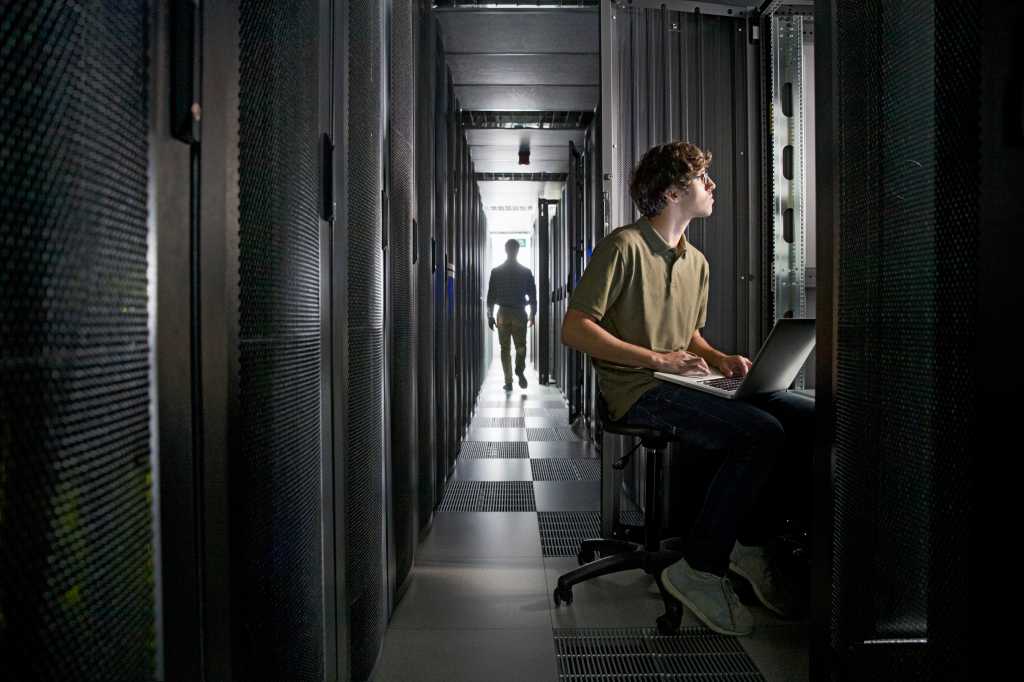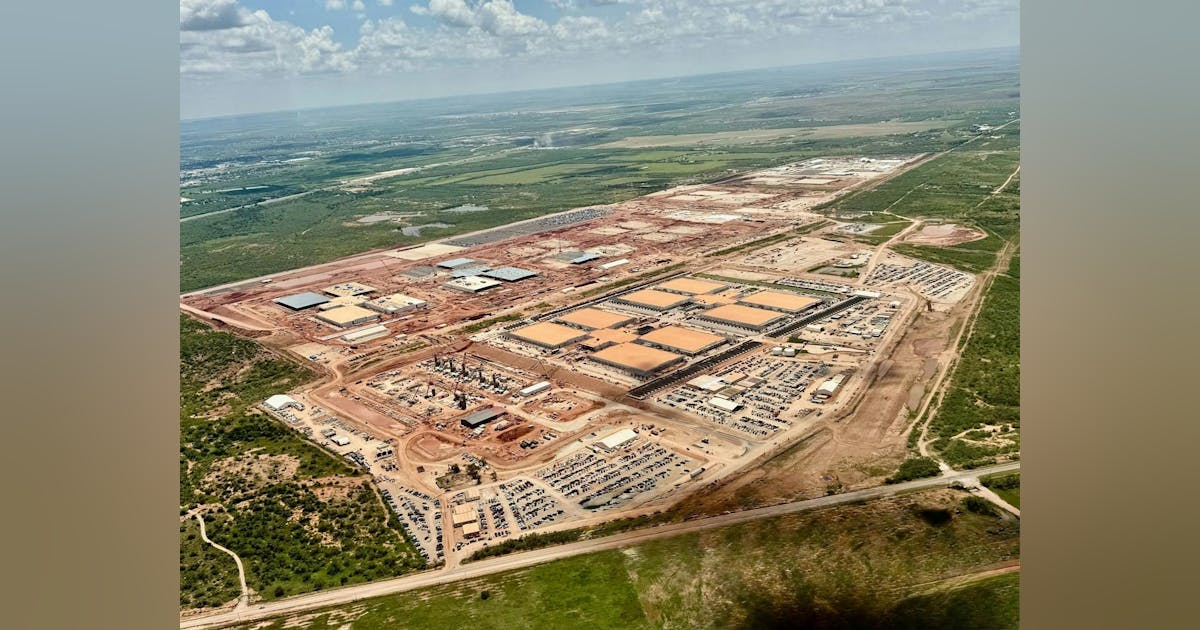
As the pace of data center construction accelerates, so too does the wave of local resistance. While multi-billion-dollar investment announcements often draw national or even global attention, the disputes that arise around individual projects typically play out at the local or regional level — and receive far less visibility. With this recurring feature, Data Center Frontier will highlight community opposition efforts that are shaping, delaying, or in some cases halting, data center development.
Tarboro, North Carolina: Energy Storage Solutions Project
At first glance, the proposal seemed like a win for Tarboro: a $6.2 billion hyperscale data center on a 50-acre site already zoned for heavy industrial use. But after more than five hours of deliberation, the town council voted 6–1 against granting a special use permit for the project.
North Carolina’s unusual quasi-judicial process limited how the council could reach its decision. Because the permit required a courtroom-style proceeding, members were allowed to weigh only factual evidence and expert testimony, not personal opinions or community objections.
Developer Danieal Schaffer has since stated he will take the next step of appealing the decision to the Edgecombe Superior Court.
Menomonie, Wisconsin: Mystery Data Center Raises Alarm
When the town of Menomonie annexed more than 300 acres of farmland, residents quickly grew uneasy about the project’s true purpose. Official information was limited to a vague reference to a “potential data center,” accompanied by a FAQ article on the town’s website. According to Fox Business News, city officials were told only that the project involved a U.S. company and one of the five major tech firms.
In a community of just over 16,000 people, opposition has gained significant traction. A Facebook group called Save Our City. Stop the Menomonie Data Center now counts more than 8,000 members. With no clear tenant identified and only broad estimates of temporary construction jobs, local resistance appears strong and organized.
Jerome Township, Ohio: Nine-Month Moratorium
Jerome Township, just outside Columbus, has enacted a nine-month moratorium on new data center construction, underscoring Ohio’s emergence as a data center hotbed — and the tensions that come with it. Township trustees emphasized the move was not anti-data center, but intended to give the community time to evaluate how rapid growth is affecting residents.
The township already hosts two Amazon facilities operating under 10-year tax abatements. Trustees said the revenue has not offset complaints of a persistent low-frequency noise from the sites, which — though within compliance — has sparked widespread frustration. The moratorium passed unanimously, with at least one trustee stating that living near the facilities has proven “not tolerable” for residents. Amazon, for its part, was reportedly surprised to learn noise had become a flashpoint.
College Station, Texas: Council Unanimously Rejects 600 MW Data Center
Hundreds of residents crowded College Station City Hall on Sept. 11 to oppose a proposed 600 MW, 200-acre data center in the city’s Midtown Business Park. After nearly six hours of testimony — including more than 75 in-person speakers, dozens of written comments, and a petition with over 5,000 signatures — the city council voted unanimously to reject the land sale that would have enabled the project.
Concerns ranged from noise and utility demands to property values and long-term health impacts. Residents criticized the compressed timeline, noting the proposal appeared on the council agenda only days before the meeting. “It seems like this sale benefits a very few people,” said Bridle Gate resident Jeffrey Herron. “The timing was terrible. We only had four days to figure out a solution for this. We do not want this in our neighborhoods.”
Priority Power Management, the developer under contract to purchase the site, pushed back on claims that the facility would resemble noisy cryptocurrency mining operations. CEO Brandon Schwertner emphasized that the project was designed as a hyperscale AI data center using closed-loop cooling, with sound levels comparable to a small office, and that power would be drawn from outside the local grid. “I would quit my job if we were doing something to harm the city,” Schwertner told councilmembers.
City leaders acknowledged both the scale of community engagement and the criticisms of the approval process. “It’s a process that very obviously, especially in cases like this, needs to be reassessed and redesigned,” said councilmember Melissa McIlhaney. For now, College Station will continue seeking other buyers for the property — with the council’s rejection marking one of the most decisive examples yet of organized community pushback against large-scale AI data centers.
Wake County, North Carolina: Residents Oppose 250 MW Data Center Near Nuclear Plant
In Wake County, North Carolina, a proposed 250-megawatt data center near the Shearon Harris Nuclear Plant has sparked significant opposition among local residents. The facility, known as the New Hill Digital Campus, is being developed by Natelli Investments LLC on a 189-acre site on Shearon Harris Road, approximately 20 miles southwest of Raleigh. The project would include six 70-foot buildings and about 80 three-megawatt generators, utilizing treated wastewater for cooling and drawing power from Duke Energy’s grid.
Residents, particularly from the Jordan Pointe neighborhood, have expressed concerns over the project’s potential impact on local infrastructure, including electricity costs and grid reliability. The data center’s estimated energy demand is equivalent to that of about 10,000 homes, raising fears that the costs of necessary infrastructure upgrades may be passed on to residential ratepayers.
Environmental and health concerns have also been raised, including potential air pollution from diesel generators and the use of treated wastewater for cooling, which could lead to increased humidity and associated health risks. Additionally, residents worry about noise and light pollution affecting their quality of life.
In response to these concerns, local advocacy groups have organized petitions and meetings to voice their opposition. As of now, the rezoning and annexation applications required for the project to proceed have not been approved, and the community remains actively engaged in discussions with local officials to address their concerns.
Prince George’s County Presses Pause on Landover Mall Data Center Amid Community Outcry
In Maryland, Prince George’s County officials have temporarily halted plans for a large-scale data center on the former Landover Mall site following mounting opposition from residents. The proposed $5 billion campus, slated to be one of the county’s largest data center developments, has faced criticism over environmental concerns, potential increases in utility costs, and a perceived lack of transparency in the approval process.
A petition opposing the project has garnered over 20,000 signatures, reflecting widespread community disapproval. Residents have raised alarms about the environmental impact, including potential water and air quality issues, and the strain on local infrastructure. Some have also expressed concerns about the adequacy of the county’s zoning laws to manage such large-scale industrial developments.
In response to these concerns, County Executive Aisha Braveboy issued an executive order pausing all data center permits and applications. Additionally, the County Council adopted a resolution to suspend the review and approval of future data center projects until at least November 2025.
Councilmember Shayla Adams-Stafford, whose district encompasses the Landover Mall site, emphasized the need for a comprehensive review of data center developments. She noted that while such projects could offer economic benefits, they must be balanced with environmental and community considerations.
The developer, Lerner Enterprises, has indicated plans to proceed with the project, but the county’s actions have introduced significant uncertainty. As of now, the future of the proposed data center remains in limbo, pending further review and community engagement.





















